Welcome to Inner Glow Life, your ultimate destination for premium, organic skincare solutions. We believe that everyone deserves to feel confident and beautiful in their skin, which is why we are dedicated to providing you with the finest skincare products available.
At Inner Glow Life, we are passionate about purity and efficacy. Our products are meticulously crafted with natural, cruelty-free ingredients, ensuring that your skin receives the gentle care it deserves. Our commitment to sustainability and ethical sourcing reflects our dedication to both your health and the environment.
Discover a wide array of skincare essentials tailored to meet your unique needs. From revitalizing essential oil cleansers and nourishing essential oil moisturizers to ancient african oils for targeted treatments, we have everything you need to achieve your best skin ever. Whether you're looking to hydrate dry skin, texture, hyperpigmentation or manage acne, we have the perfect solution for you.
Why Choose Inner Glow Life?
Our Natural Ingredients:
Harnessing the power of nature to deliver safe and effective skincare.
Expertly Formulated:
Developed by skincare experts to ensure maximum results.
Cruelty-Free:
Committed to animal welfare and never testing on animals.
Satisfied Customers:
Join our community of glowing reviews and testimonials from happy customers who have experienced remarkable transformations.
Explore and Experience:
Ready to embark on your journey to radiant skin? Browse our collections and find the perfect products to enhance your natural beauty. With Inner Glow Life, beautiful skin is just a click away.
---
Our Organic Ingredients
Sunflower Oil
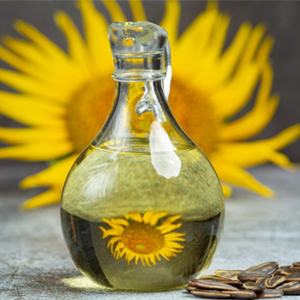
|
Sunflower oil is good for dry skin, sensitive skin, combination skin, oily skin, and mature skin. For dry skin, sunflower oil helps provide moisture and allows skin to retain water. For sensitive skin, sunflower oil provides gentle moisture, protection, and a soothing feel. |
Coconut Oil
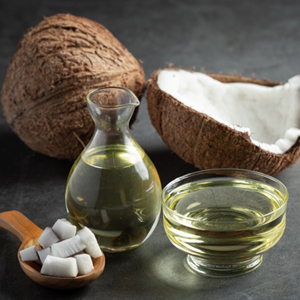
|
Coconut oil is predominantly composed of saturated fats, which work to repair your skin’s natural barrier and soak in moisture. By keeping your skin cells hydrated, your skin retains a nice smooth surface. The lauric, capric and caprylic acids that are also in coconut oil’s composition help to fight off any bacteria from the day. |
Hibiscus Sabdariffa Flower Oil
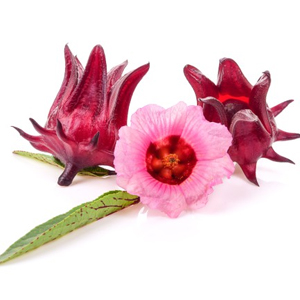
|
Hibiscus sabdariffa flower oil possesses a remarkable ability to nourish, moisturize, improve skin elasticity and anti-aging. A Little Goes a Long Way, Absorbs Quickly, Not Greasy, Chemical Free, Not tested on Animals, Does not contain any preservatives.The plant oil thats known as "almost as good as botox". Not only does this help with age spots, this Hibiscus benefit can encourage an all round fresher, younger, smoother looking complexion. The natural acids present in Hibiscus help to purify your skin by breaking down dead skin and increasing cell turnover, they can even help to control acne breakouts.
|
Vitamin E Oil
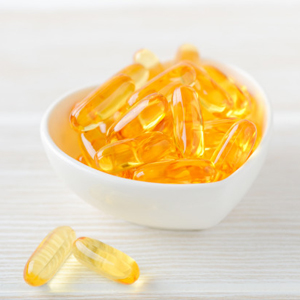
|
Vitamin E assists in various kinds of cellular restoration from sun damage to healing support for scars or burns. Vitamin E is an antioxidant topically and internally: They prevent oxidative damage to cells by helping to remove free radicals (the bad guys).
Vitamin E is also a natural anti-inflammatory and good for hydrating skin, and serves as an effective natural barrier to the sun.All in all Vitamin E plays an important role in neutralizing free radicals, moisturizing skin, and improving the appearance of visible skin aging.
|
Safflower Oil
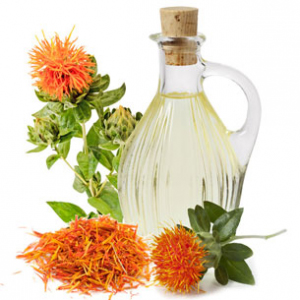
|
Safflower Oil can lock in moisture to hydrate and calm the skin, thus promoting radiance. It also contributes suppleness to areas that are dry, rough, and unevenly toned and is known to have a reparative and even slightly cooling effect on dry, damaged skin.
Safflower oil boasts anti-inflammatory and moisturizing properties that also aides in wound healing, lightening age spots and uneven skin tone.
|
Olive Oil
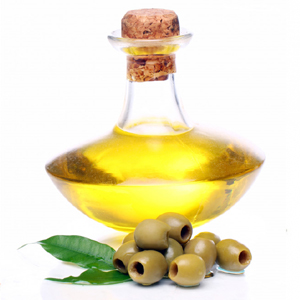
|
Olive oil acts as an antioxidant, which is a substance that prevents oxidation. When applied to the skin, antioxidants may prevent premature aging. Also, some research suggests that putting olive oil on the skin after sun exposure may fight off cancer-causing cells.
|
Pure Shea Nut Oil
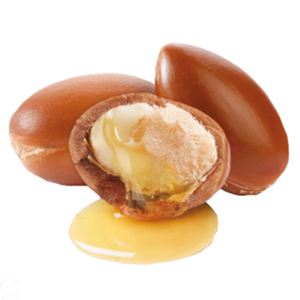
|
The research shows that the use of Shea nut oil results in lowering wrinkles and brighter complexion. As it contains anti-inflammatory properties including cinnamic acid, it helps to soothe the inflammation on the body parts.
|
Almond Oil
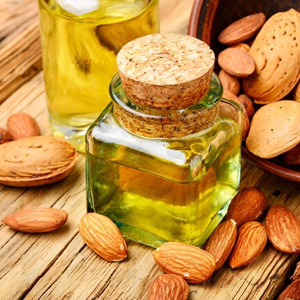
|
Almond oil has been used for centuries to treat dry skin conditions, including eczema and psoriasis. Improves acne. The oil's fatty acid content may help dissolve excess oil on the skin, while the retinoids in the oil may reduce the appearance of acne and improve cell turnover. Helps reverse sun damage.
|
Avocado Oil
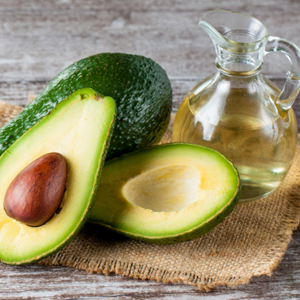
|
Avocado oil is loaded with omega-3 fatty acids and vitamins A, D, and E.Avocado oil contains potassium, lecithin, and many other nutrients that nourish and moisturize the skin. The outermost layer of skin, known as the epidermis, easily absorbs these nutrients, which also help to form new skin. The antioxidants and vitamins in avocado oil help to heal the dry, irritated, and flaky skin and also help to ease the symptoms of a sunburn. Avocado oil helps wounds to heal more quickly. The vitamin E, beta carotene, vitamin D, protein, lecithin, and essential fatty acids in the oil can support healing and soothe the skin. The first signs of aging usually appear on the skin. Studies have shown that healthful fats, such as those found in avocados, can help the skin to retain its elasticity.
|
Rose Hip Seed Oil
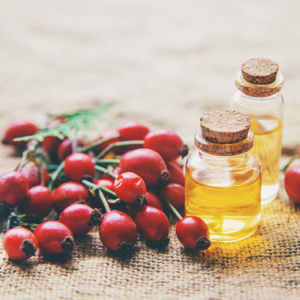
|
Rosehip oil contains a wealth of essential fatty acids, including linoleic and linolenic acid. The many fatty acids in rosehip oil make it an excellent option for hydrating dry, itchy skin. The skin also easily absorbs the oil, allowing its antioxidants to travel deep into the skin's layers.
|
Argan Oil
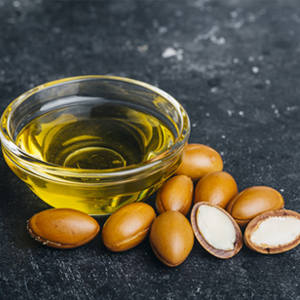
|
Argan oil has anti-sebum effects, which can effectively regulate amounts of sebum on the skin. This can help to treat several different types of acne and promote a smoother, calmer complexion. Apply argan oil — or face creams containing argan oil — directly to your skin at least twice a day.
|
Geranium Oil
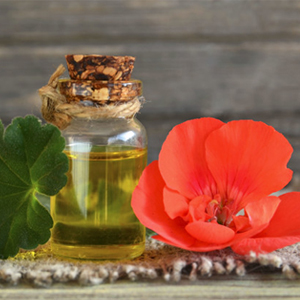
|
Geranium essential oil indicated that its antibacterial, antimicrobial, and antiseptic properties make it beneficial for reducing acne breakouts, skin irritation, and skin infections when applied topically.
|
Carrot Seed Oil
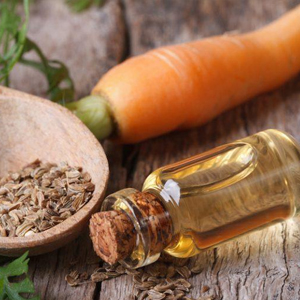
|
Cold pressed carrot seed oil is cold pressed from the carrot seeds, and it's used in cosmetics for anti-aging properties in skin care. Carrot seed essential oil has shown antibacterial, antifungal, anti-inflammatory, and antioxidant properties. What it doesn't have are the vitamins and nutrients provided by carrots.
|
Tea Tree Oil
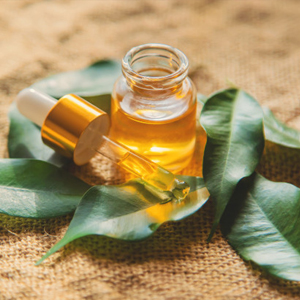
|
Tea tree oil is an essential oil that has many benefits for the skin. It’s an alternative to conventional treatments. Tea tree oil can be used to treat conditions and symptoms that affect skin, nails, and hair. It can also be used as a deodorant, insect repellent, or mouthwash. When used topically, tea tree oil can treat certain skin conditions or improve the overall appearance of your skin.
|
Rosemary Leaf Extract
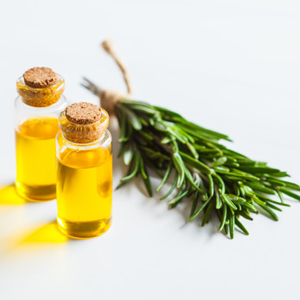
|
Rosemary leaf extract With its powerful disinfectant and antibiotic properties, the herb can help to treat acne and oily skin conditions. When massaged into the face, rosemary oil can help lightens dark spots and blemishes on the skin resulting in an improved skin complexion.
The anti-inflammatory properties of rosemary extract help to reduce swelling and puffiness of the skin. It also helps to heal burns and soothe the skin. This herb's medicinal qualities makes it a powerful cure for chronic skin conditions including dermatitis, eczema and psoriasis.
|
African Shea Butter (Ghana)
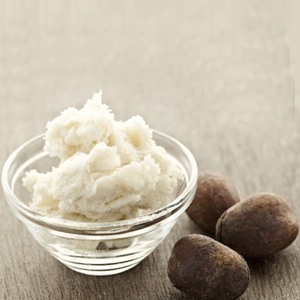
|
Shea butter is typically used for its moisturizing effects. These benefits are tied to shea’s fatty acid content, including linoleic, oleic, stearic, and palmitic acids. When you apply shea topically, these oils are rapidly absorbed into your skin. They act as a “refatting” agent, restoring lipids and rapidly creating moisture. This restores the barrier between your skin and the outside environment, holding moisture in and reducing your risk of dryness.
Shea butter contains high levels of linoleic acid and oleic acid. These two acids balance each other out. That means shea butter is easy for your skin to fully absorb and won’t make your skin look oily after application. The plant esters of shea butter have been found to have anti-inflammatory properties. When applied to the skin, shea triggers cytokines and other inflammatory cells to slow their production. This may help minimize irritation caused by environmental factors, such as dry weather, as well as inflammatory skin conditions, such as eczema. Shea tree products have been established as powerful ingredients to fight skin infections caused by fungi. While shea butter may not be able to treat every kind of fungal infection, we know that it kills spores of the fungi that causes ringworm and athlete’s foot.
|
Myrrh Oil (Egypt)
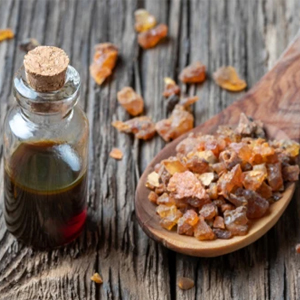
|
Myrrh has long been used in traditional Chinese medicine and Ayurvedic medicine. Scientists are now testing the oil’s potential uses, including for pain, infections, and skin sores. It kills harmful bacteria.
Myrrh oil supports skin health and help to heal sores.It combats pain and swelling. It has significantly more effects at blocking ultraviolet rays than the sunscreen alone.
|
